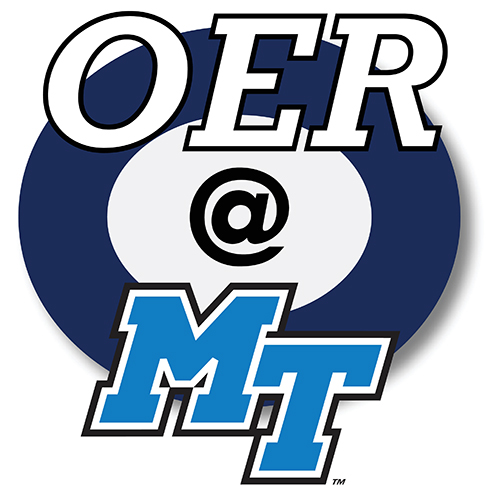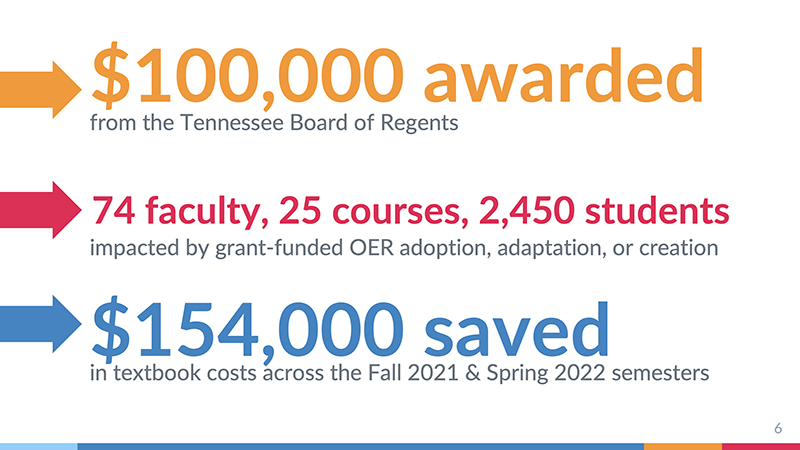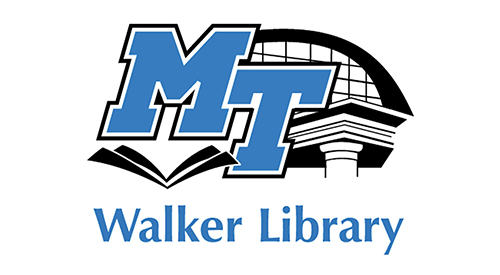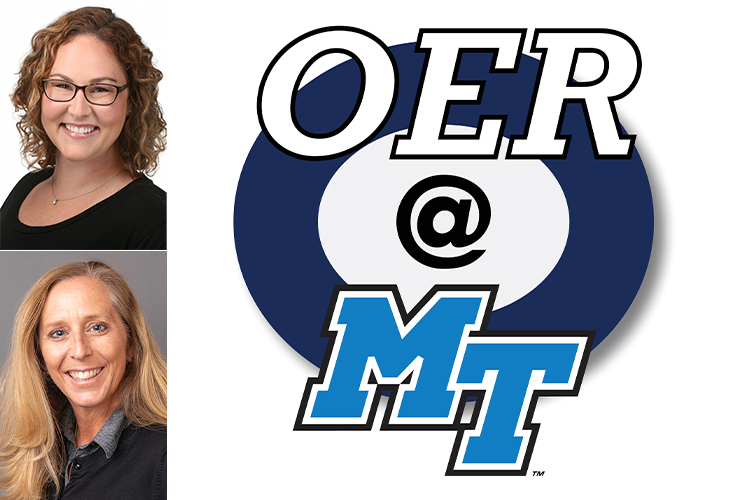The rising costs of textbooks have been a topic of conversation for years, but a group of Middle Tennessee State University faculty and staff is making it their mission to make course materials more affordable and, in turn, keep students on track to earn their degrees.
For the last 2 1/2 years, these MTSU leaders have been using grant money to make required materials cost as little as possible using OER, or Open Educational Resources. Since 2019, that group has used $100,000 of grant funds through the Tennessee Board of Regents to save 2,500-plus students more than $150,000.

OER is defined as “teaching, learning and research materials that are either in the public domain or licensed in a manner that provides everyone with free and perpetual permission to retain, reuse, revise, remix, and redistribute.”
Dr. Erica Stone, an assistant professor of English and OER steering committee member, studied a segment of the MTSU student population and found that 42% of the students surveyed either had delayed access to their traditional study materials or were never able to afford them at all.
The students surveyed also said they had to prioritize what textbooks they bought, sometimes forgoing a book for an elective or a general education course and instead spending the money on a textbook for a class in their major.
At MTSU and universities around the country, the College Board, a nonprofit association of educational institutions, says students should budget an average $1,240 to $1,440 for books and supplies per academic year. The National Association of College Stores has reported, however, that the average college student will end up spending $415 a year.
To combat these costs, MTSU faculty members are using information already available free to the public or writing and publishing their own materials. In total, more than 70 faculty members in 25 different courses used OER in the most recent academic year.

Stone said the free materials are just as high in quality as their expensive counterparts. In fact, she said, once a student has access to an OER textbook, their professors can make needed updates to that textbook without requiring students to buy a new version.
“It’s dependent on us as faculty to continue making sure these resources are updated and available to all students,” Stone said.
OER access improving student performance
The benefits to students don’t stop there. Stone said that students who use OER text have actually been more successful.
“Our data shows us that students’ engagement and connection between reading and performance were significantly higher when they were using OER materials,” she said.
One of the biggest benefits of OER materials, the committee members reported, is that they’re so accessible. A student can have a physical book or one accessed on a computer, tablet or phone, making OER materials more equitable than traditional textbooks.
Stone said that OER materials also are available to students on the first day of class, which ensures they don’t fall behind — some as much as three weeks into the semester — if they have to wait on financial aid before they can purchase expensive textbooks or software.

Walker Library a strong OER partner
The steering committee is applying for more grants and continuing to encourage faculty and staff to earn the Creative Commons Certification, which ensures that faculty have a comprehensive knowledge of open education, including Open Educational Resources, and how to find and utilize OER materials.
MTSU’s James E. Walker Library is also shouldering significant responsibility in making these resources available for more students.

Dean Kathleen Schmand said the library is continuously adding to its online textbook collection as well as supporting PressBooks, an online platform that allows self-publishing of textbooks, articles and other documents that could be used in the classroom.
“Our main goal with OER is continuing to grow our collection of low-cost or free textbooks for students,” Schmand said. “OER is important to MTSU students, and the Walker Library is wholeheartedly involved in supporting it.”
The library recently hired a new chair of user services to act as the point person for OER. They plan to add at least one more position to help facilitate the work required of faculty members to use OER materials.

Schmand said a faculty survey she conducted last fall overwhelmingly showed they were interested in working more with OER, which should lead to a more affordable experience at MTSU.
“We build our collections and provide subject support in ways that will continue to advance OER efforts on campus,” said Schmand.
“Additionally, we have been in the midst of a strategic planning process, and we are already hearing from faculty that they plan to increase their OER across courses and students are mentioning textbook access and accessible resources as well.”
Lastly, the committee, along with a large group of faculty members, said it wants to make sure that students and their parents know which courses are taught with OER. When selecting classes for the fall, students will be able to search “Open Educational Resources OER” in the attribute type.
To learn more about Open Educational Resources at MTSU, visit https://MTSU.edu/OER.
— Hunter Patterson (Hunter.Patterson@mtsu.edu)


COMMENTS ARE OFF THIS POST